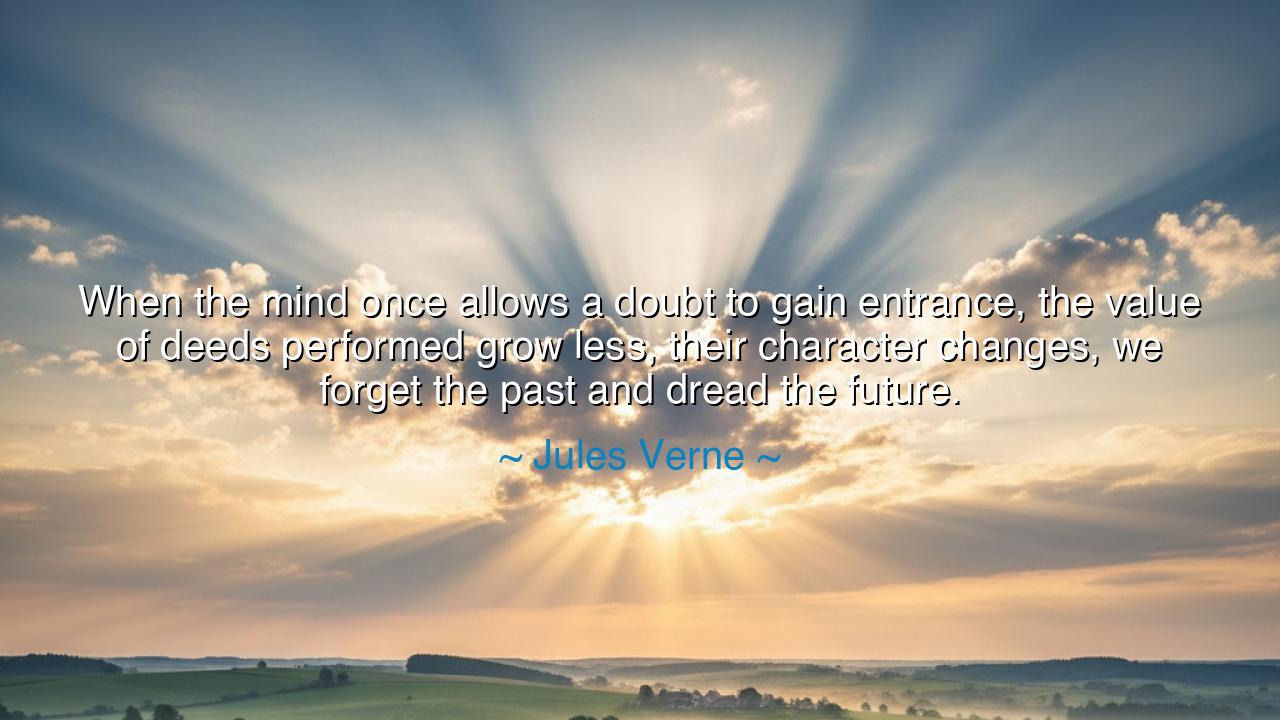
When the mind once allows a doubt to gain entrance, the value of
When the mind once allows a doubt to gain entrance, the value of deeds performed grow less, their character changes, we forget the past and dread the future.






"When the mind once allows a doubt to gain entrance, the value of deeds performed grow less, their character changes, we forget the past and dread the future." These words by Jules Verne, the visionary author who foresaw humanity’s reach for the stars and the depths of the ocean, speak not merely of adventure, but of the inner voyage of the human spirit. They remind us that the true enemy of greatness is not failure, nor hardship—but doubt. For when doubt enters the mind, it corrodes our sense of purpose, weakens our faith in what we have done, and blinds us to what we can yet achieve. It is a thief of courage, silently reshaping strength into hesitation, and confidence into despair.
Verne, who lived in the age of exploration and invention, understood that every great act—whether sailing uncharted seas or building engines that defied gravity—begins first in the mind. The moment the mind falters, all that follows is weakened. Doubt, once welcomed, does not merely question the path ahead; it reinterprets the past, turning triumphs into trivialities and memories into burdens. What was once a record of victory becomes a ledger of mistakes. Thus, doubt does not only halt progress—it rewrites history and poisons the soul’s relationship with both past and future.
Consider the tale of Robert Falcon Scott, the British explorer who sought the South Pole. His courage was immense, his preparation rigorous, and his vision noble. Yet as storms battered his expedition and hope began to fade, doubt crept into his men’s hearts. It was not merely the cold that defeated them—it was the slow erosion of belief,






AAdministratorAdministrator
Welcome, honored guests. Please leave a comment, we will respond soon